Listen:
Episode Synopsis:
Welcome to Episode #80 of Habitual Excellence, presented by Value Capture.
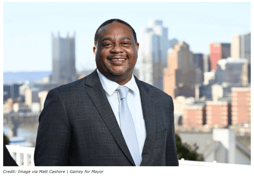
In this podcast episode, Ken Segel, the CEO of Value Capture, meets with Mayor Ed Gainey, City of Pittsburgh, to discuss the city's journey toward habitual excellence and Mayor Gainey's leadership learnings.
We will explore the principles of habitual excellence as exemplified by Mayor Ed Gainey of Pittsburgh. The episode delves into Gainey's leadership style, focusing on his commitment to continuous improvement and excellence in public service. It highlights Gainey's background and how his experiences have shaped his approach to leadership. Additionally, the post discusses specific initiatives and strategies implemented by Gainey to foster positive change and improvement within the Pittsburgh community. Through anecdotes and insights, the episode provides valuable lessons and inspiration for individuals and organizations striving for excellence in their respective fields.
Click to visit the main Habitual Excellence podcast page.
Subscribe:
To make sure you don't miss an episode, be sure to subscribe today! Please rate and review the podcast.
Quotes:
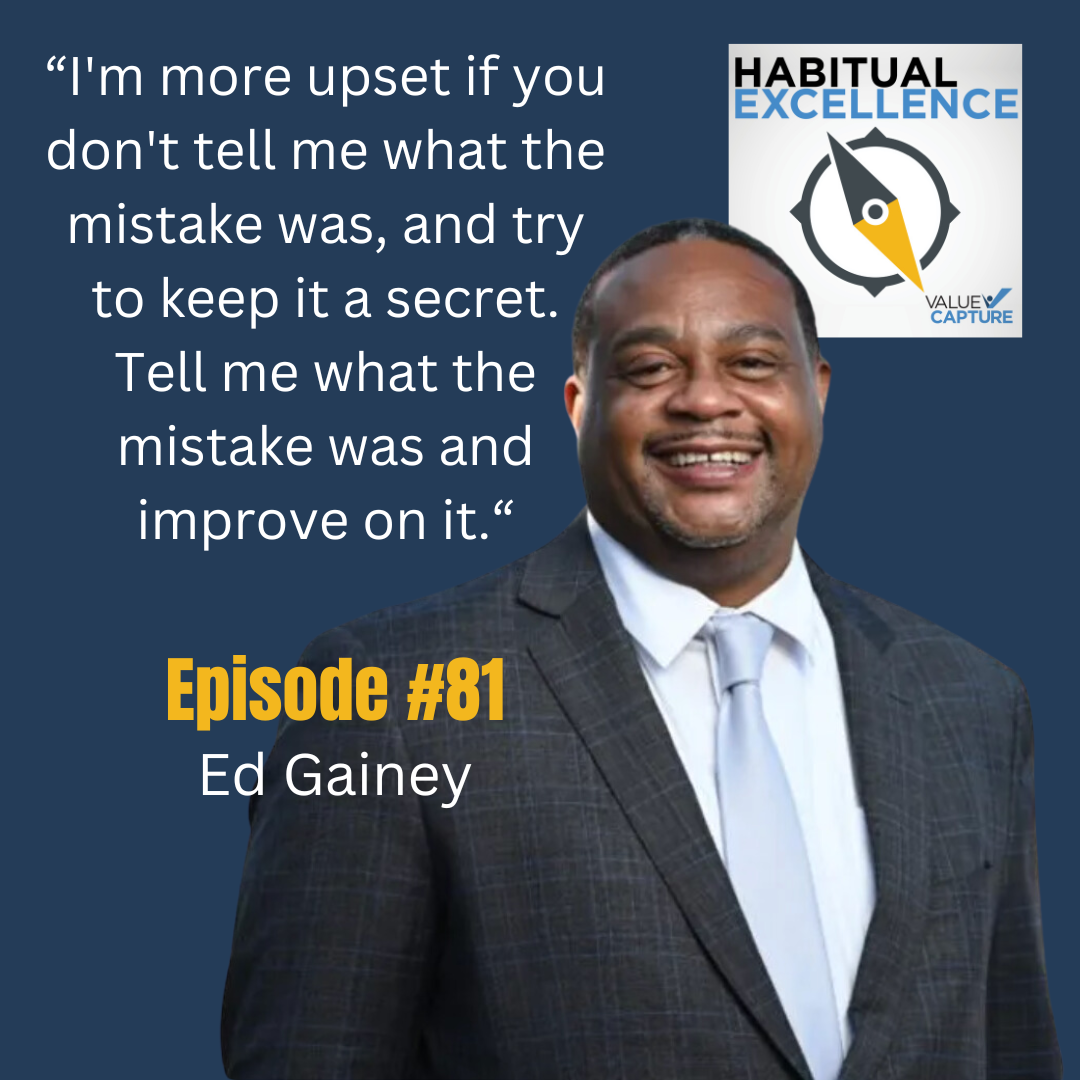
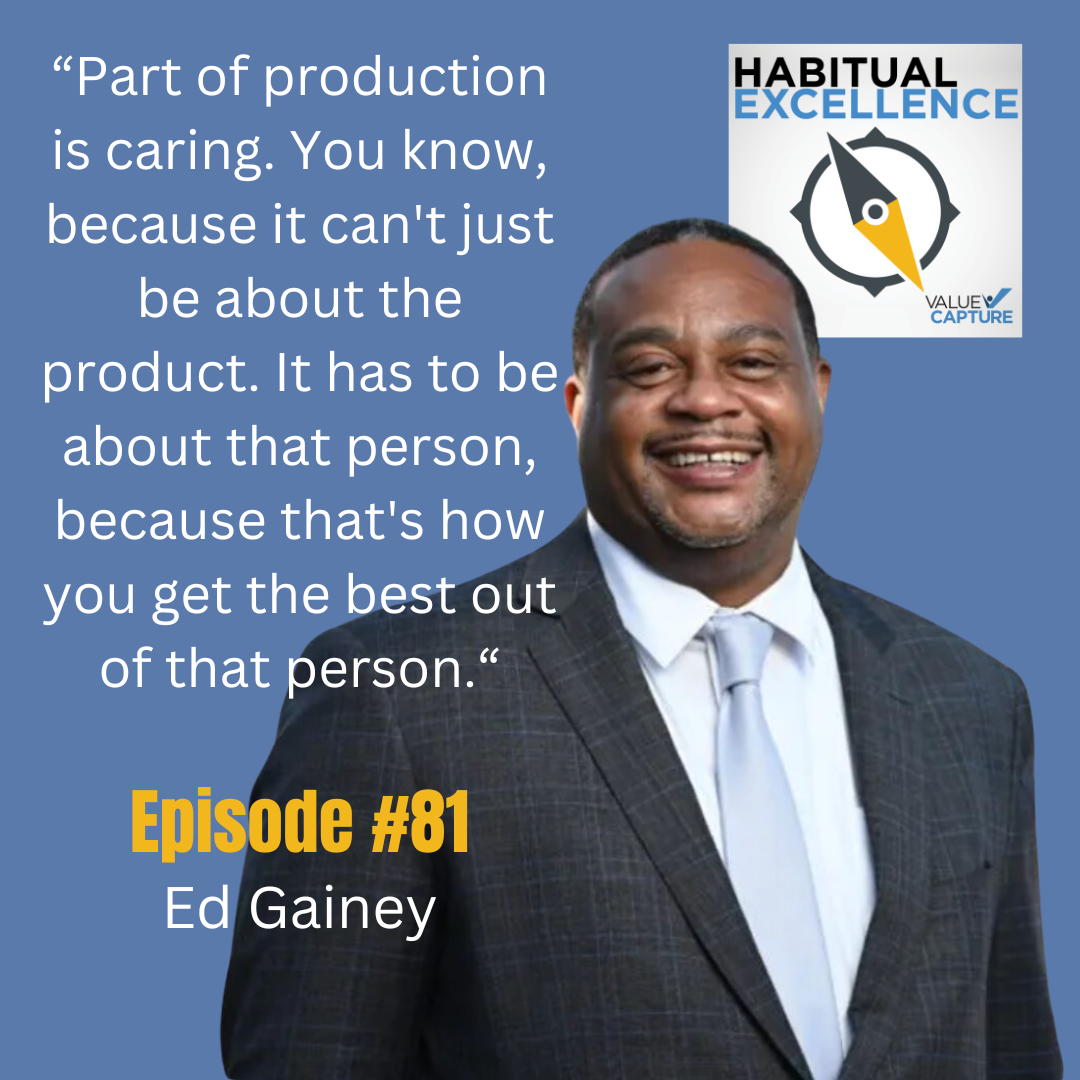
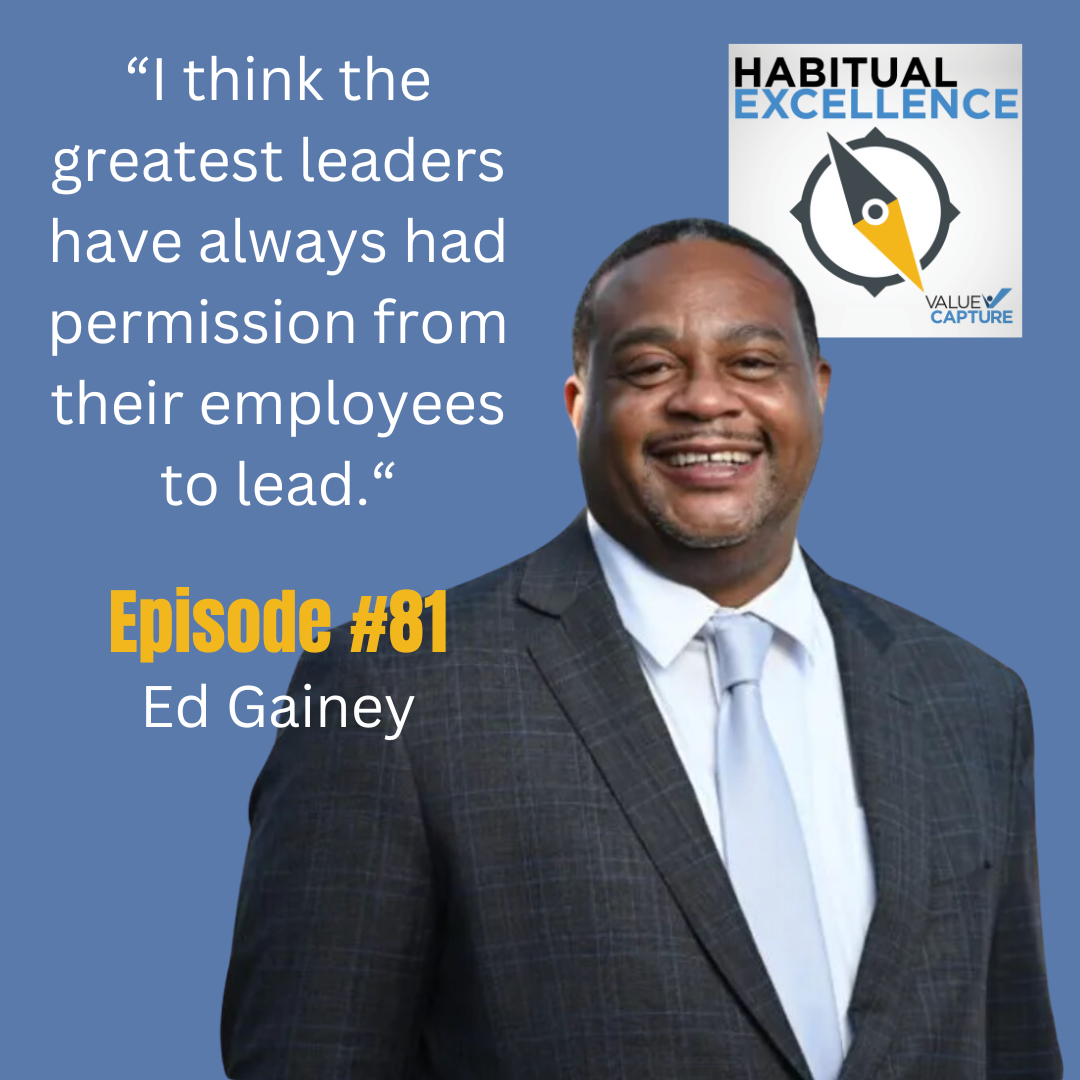
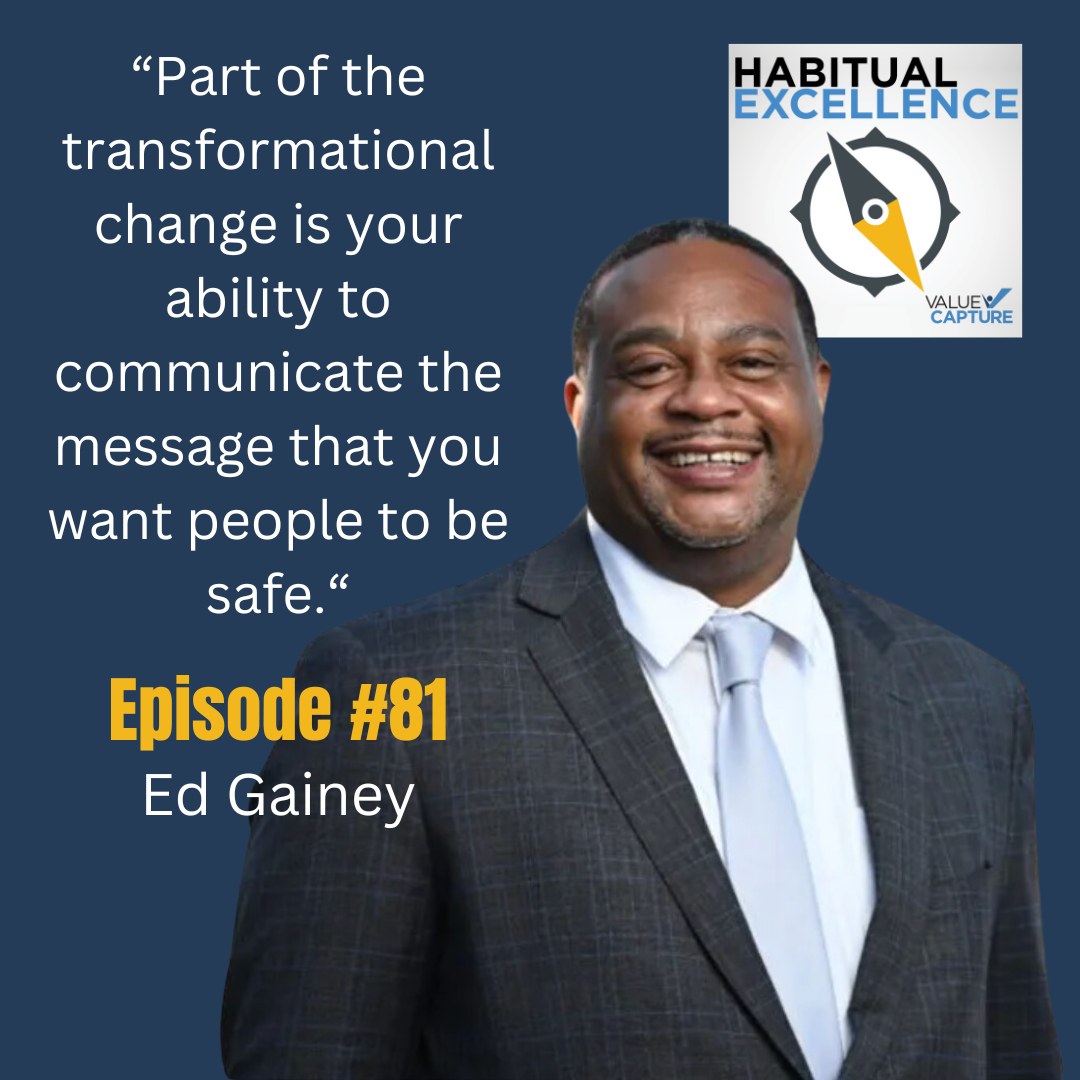
Transcript:
Ken Segel – Value Capture (KS): All right listeners. Hello! I'm Ken Segel. I'm the CEO of Value Capture, and we are very privileged to have a unique and special guest today, the Honorable Ed Gainey, who is the 61st Mayor of the City of Pittsburgh. Mayor Gainey, welcome to Habitual Excellence and thank you so much for being willing to share your journey as a leader leading with these ideas and accomplishing some remarkable things.
Mayor Ed Gainey – City of Pittsburgh (MG): I appreciate it. Thanks for having me.
KS: We are excited to have you. You know, most of our guests are healthcare leaders. And every one of those healthcare leaders and all of the people listening to this podcast who are leaders themselves, know that health and safety really are much more impacted by things that happen outside the healthcare system than inside the healthcare system. And you have taken the same principles of habitual excellence, of breakthrough leadership, and you are making a difference. You and your team, and how you're inspiring the city of Pittsburgh, the people of the city, Pittsburgh, to move on some crucial things. So we're excited.
If you could just share a little bit about your background, and how you came to the habitual excellence framework, and then we'll talk about how you got started with it.
MG: Yeah, you know, I grew up in the eastern part of Pittsburgh. I went to Holy Rosary for Fourth to Eighth Grade. Central Catholic for Ninth and Tenth. And I graduated from Peabody High School. I went to Morgan State University, came home, got into politics … community development led into politics. From there I worked for two mayors, ran for State Representative and eventually ran for mayor, and was fortunate enough to win.
And you know, during the course of my running for Mayor, Lisa kept telling me (Lisa Frank, Chief Operating Officer), I want you to meet a guy named Geoff (Geoff Webster, co-founder of Value Capture and leader of Pittsburgh Futures). “You always talk about leadership. He's always talking about leadership.” And that's good. And so we had a conversation.
One of my teachers, when it comes to leadership, is a gentleman named John Maxwell, a phenomenal teacher. There were many personally, but I read a lot of his books, listened to a lot of his podcasts and things of that nature. So he's one of my immediate teachers. But then, you know this concept of “habitual excellence.” I started to take to it. And I was curious at the time, Geoff, about exactly how? How do you teach it? You know for me the greatest leaders have been the greatest student, and I've always needed to have teachers around me if I want to be as great as I want to be. Not as great as anybody else, as great as I want to be. And so I was intrigued by this.
The first time we went over there, and he brought out he brought out his Legos. And I said, What’s this? I'm like, come on. But I'm ready to study. You know what I mean. I'm studying. So yeah. And it [the Legos systems thinking training exercise] taught me something. First thing it taught me is that my impatience wouldn't let me see the ending right? Because when you start the Legos process [in the training exercise], it looks easy.
So you get it done. You gotta make sure the outcome is there? Make sure the numbers add up. Make sure that you know you're not taking a loss on your balance sheet, the whole nine [yards]. And I was taking a major loss. Yeah, because we wasn't working as a team. And in learning that we wasn't thinking about what is the best way to improve a system. You see what I mean. We were looking at: do we need to add more people? What is this person doing wrong? And so I was more or less about looking at people, not the system! At the end of Legos, what you learn is that you don't know what you need until the system has been improved.
THE RECORDING WAS UNSTABLE THEN STOPPED HERE FOR APPROXIMATELY A MINUTE
KS: So picking back up Mayor, you're already demonstrating the power of humble leadership and systems thinking. And let me just set a little context for listeners. So you mentioned Lisa. Lisa Frank is the chief operating officer of the city, and influential leader as part of your team, and Geoff Webster is the leader of Pittsburgh Futures, a sister organization that is taking the Habitual Excellence framework that we share with Value Capture and working with you, the mayor, and others to help everyone in an entire region thrive and reach their full potential. And by alluding to Legos, you're alluding to an exercise that many people who have done “lean” or systems thinking will recognize as taking a very broken assembly line, and having to use a principle-based approach as a leader to make it better.
MG It’s an assembly line right? I was only looking at it from a people perspective. Not from a system perspective. Yeah. And so, whether it was the Assembly line [in the Legos exercise]. Whether it was DPW - Department of Public Works and their line, what whatever learning line [a term for ‘model cell’ or demonstration area] we talk about? The police line? The violence learning line? the sidewalk line. Whatever we were looking at.
What it helped me to understand is that I can't ask people to do things if the system is not producing the outcome that I needed it to produce. And so for me, that's what Legos taught me. So you know, everybody takes their own knowledge away from something. My knowledge was built on the fact that I look at systems now.
KS: Which is such a powerful change and a lens right? And allows transformational change to happen.
MG: There was another concept, too. So we also went to Durham North Carolina [for the Value Capture CEO Seminar at Duke Health], and there was a lot that was there. There was a gentleman that talked about his pancake breakfast hit me. What are you studying in the morning, that gets you to that outcome. And every day he would study this every single day.
And then he talked about meeting with front line workers. And the ability to not only meet with them, but also to role play in their position to have a better understanding of what they were going through. That was a was a powerful narrative, because not only where you have in your breakfast that you “eat” every day … It also prepares me, for if I'm going to talk about the violence line like I did today. Well, I've already studied exactly where we're at, so I understand what I have to do when I get there. I don't have to wait. I'm already prepared before I get there. So yes, I want to hear from them. But some of it is, how do I control the tempo?
I can't ask nobody to get details in their brain if the tempo is out of control. When we control the tempo, people learn better because they're more engaged, so you can't let the tempo escape. So me doing my breakfast, my pancake breakfast [my start of the day routine] gives me the ability to be able to visualize how I want to enter the room. What I want to say, how we should start this topic, because if, when I control the tempo, everybody learns the details.
KS: Mayor Gainey, this is sort of a master class already on how a leader thinks systemically and you have your own sort of standard way you start thinking. And again to provide a little context for listeners. You referred to Durham, and that was our CEO learning experience. And you came down and learned at Duke Health among all things, from healthcare leaders and leaders in industry and leaders in education and the Centers for Disease Control. And you seem like a leader who's able to see principles that can apply, no matter what sector or industry you're in.
MG: Absolutely. There’s no question, I think like that. Let’s start with a new position. You know, every time you get a new position, you have to learn that position, not by the title, but by the work. A lot of people get a title, but their title doesn’t encompass the work. They’re just happy to wear a title. For me it was different. I’ve always used my title to increase my work. Then I need permission. I think the greatest leaders of always had permission from their employees to lead. I think that when you have to force yourself -- I don't think I know -- whenyou have to force yourself on your employees, then you kill morale. And I've seen a lot of leaders crush morale because they let out of fear, and not out of humility.
And so you want permission from your employees to lead. And then production. There has to be production. And that's where systems come into play. Because if you're in a new position, I mean, the old person wasn't doing the right job in regards to how outcome and production is happening. So you want to examine your system.
So we examined the police system. We examined the sidewalk system. We examined the Department of Public Works system, the violence line system. We also examined the psychological safety right here on this floor [the Mayor’s executive floor of the City County Building] to make people feel comfortable about being able to speak. We turn the fifth floor into a learning lab, because all that has production and outcome. Once you get to production and outcome, people take credit in their work right? They work for the city, but they also see themselves building. So I'll always tell people if you're not challenged in your skill set, then you're not ready for a new position, because every new position to challenge your skill set by increasing your work, to increase your knowledge, to change the system that will give you a better productivity and outcome, based on how you see you can deliver goods and services to the city of Pittsburgh. In my opinion.
KS: I hesitate to say anything, because there is not a word I can say to improve it. But people, I think, are hearing that connection with “everyone every day,” and that they have to own it and and want to lead it. It's not about everything you do or commands, but you know, and that's starting to happen.
So let's go, maybe a little bit deeper into some of these examples and the results they're starting to produce. So I got a look at your data and it looks like last year was the safest year on record ever for the city workforce. And you're down on injuries that people about 32 percent, and then for DPW, Department of Public Works is down and astonishing 58% from when you started. Is that right?
MG: Yes
KS: So do you want to talk about that work a little bit?
MG: So you know coming in [to office], things can be created or they can be made for you. This was made for us, coming in from off of a pandemic. We had the opportunity to change a lot of things. So, you know, working with Geoff, talking about getting more closer to the frontline work, actually going out, and the first snowstorm with all my lieutenants, [Deputy Mayors] Jake Wheatley, Jake Pollack, we went out and got into the snow trucks.
KS: You observed together, on the front line
MG. Exactly. One, the equipment that they were going to need. Did we have enough personnel in the streets to be able to do? Remove this, though? And what we found out is that we sometimes we only have one person, one truck at one neighborhood, which was just inefficient, but we had 21% of our personnel off. We had to figure out why. Come to find out that they run off. That mean they were off because the morale was so low they just didn't want to come to work. And then we also had to talk about, how do we reexamine how we do streets? You know, like every neighborhood, can't have the same amount of personnel, you know, based on being equitable across the city because it wouldn't be. You know where you have more hills, you have to think about how you deal with more hills. If I wouldn't have gotten up on that truck and we stayed there for like 3, 4 hours, I wouldn’t have been able to find out. That’s one.
Two is going into the back room and seeing how is the back room set up in regards to: if I need something, one, how long do I have to wait to receive it? Two. Is it set up to where we have
we have an accounting of what products are where, how many products do we have? What products run out fast? Because if the back room is not set up, the front room can't move. So we got better at being able to do that. Then we created the help chain. The help chain said that if there's a problem, within 24 hours, we want to be able to ensure that the top lieutenants know, and that we have some type of examination of what the root cause was. Root cause was, look at the root cause, examine and find out what is the solution, not what is the answer? What are the solutions that can make this better and keep our people safe?
And are we wearing that badge of honor every day? To say that safety comes first, because part of transformational change is your ability to communicate that message that you want people safe. So, as you can see, we start putting things up “Safe Welcoming and Thriving.” That's what we want people to focus on. So when you see the reduction in, you know, our employees not being hurt … the reduction of our employees being injured. That's because we put a serious look on safety.
And now here's the big thing. We also got the directors to buy in right. So now the directors is believing in, you know, because if you don't, you can have the frontline worker, buut if that director’s not buying into it, you're still going to have a clogged drain. So when we got the directors to buy into it, now they send it up to my lieutenants, my lieutenants take a look at it. They send it back down, or we go visit, it started to show the employees, somebody cares. Somebody cares.
And so part of production is caring. You know, because it can't just be about the product. It has to be about that person, because that's how you get the best out of that person.
And so those are the things that we did in DPW that resulted in the 58% decrease of people getting injured because people started taking it serious, of how they deal with the daily equipment and how they deal with themselves.
KS: There is so much that you're tying together. The vision, the clarity of the vision …
MG: Every day.
KS: … Creating the system around it, modeling the system every day. Real time safety. Showing people that it's real, all of that. Honoring the work …
MG: But you gotta do it every day. That's the key. You gotta do it every day.
KS: How do you do it every day, Mayor?
MG: … Because you have to get up with a mindset that you, your mind set has to be focused on, how do I create a city that's inclusive? How do I create a city for growth? Why can't I create a city for all if I work for someone who they all feel that they’re included in how we run this city? And I could take you to DPW. And I could show you that we don't have a problem with calloffs anymore. We don't have that problem. We don't have a problem with people not wanting to come to work anymore. We don't have that problem. People are giving 110% energy. And that comes from making people feel that their work is valued because it is.
DPW is probably – the reality is - my favorite department because they're my real front line. Yeah, if the streets got potholes, are not paved, are snow covered … if the streets are not good, the city can’t move. And so there’s no disrespect to my Public Safety Department with Department of Public Works is number one, because without them nothing moves.
KS: All the leaders who lead with systems thinking, listening to this, are coming out of their chairs because they hear you articulating the truth and the results that they know, too. It's more than just safety or the thing you're focused on. The right. Things start to happen in multiple ways. Right? If you show people you care and you create the system to support them all of a sudden, they’re not calling off on this kind of thing. So you started with the workers of the city itself, and you're getting dramatic results. And of course you were trying to spread [the thinking] the same way, to think out to what they were working on. So talk about sidewalk walkability, talk about the violence learning line, talk a little bit about what's now, you know, really affecting that broader vision in the community.
MG: So the sidewalks walkability was, major, because we've had a lot of broken sidewalks. The mobility was bad. We didn't have curb cuts the way that we thought we should have it. And then it was challenging because we knew going in that a great percentage of this city is below poverty. We don't have a lot of middle-class neighborhoods in the city and so you could see the difference in sidewalks based on what neighborhoods you go into. The reality is, we don't own all the sidewalks. Some of the sidewalks are owned by people, so we just split it up into 2 2 groups. One is the ones that we own. We had the ability to go on there and make sure we improve those sidewalks.
The second one was going to be a little bit more difficult because it comes with communication and education of how we get homeowners a discount to help them repair their sidewalks if they would see the interest in doing that, because some of them have said my sidewalk has been [broken] up for 10 years. I'm used to seeing it that way. I'm used to seeing my neighbor’s sidewalk probably. So, even though I know it's there. I no longer visualize the problem because it's become part of my daily life, and what we've had to demonstrate to them was that it doesn't have to be. And we want to help you. And so in helping you, we created a tier program. Let’s put you into this tier program. And we want to show you. And I promise you that you're going to feel better about your problem.
KS: One of the things as an observer that's been most impressive to me is you use the same systems thinking to attack this. There were all these bureaucratic things, and one department not talking to another that were in the way, or potential attitudes. And and you just you all just use systems, thinking, and rapid experiments to sort of figure that all out.
MG: Well, institutions are silent. And in government we've been siloed for a long time. This is my part of government, and I saw it and I’m concerned by it. What we tried to do was remove the invisible wall. Because we all have to work together. And so even in my department meetings, when I am meeting with my department directors, we are meeting to talk about how we work together. I want to hear how Parks and Rec works with DPW. I want to hear how DOMI (Dept of Mobility) works with Neighborhood Needs. I want to hear how you opened up your walls and work together. And so when we're in our director meetings, it's all about how we work together. It's about how so and so was talking to so and so that never talked before. But now they feel that they're valued enough to be able to go down there and have a real live conversation.
We've had people come and say, Okay, we're waiting for the shoe to fall, because we've always been punished from the mistakes that we made. My strategy is that … fall fast. If you're not making mistakes, you're not growing. You have to experiment. In any time you have R&D research and development - you know this as well as I do -- that there's no such word as perfection. There's going to be mistakes. I can deal with learning mistakes because that's how we learn. If I can get you in a mindset to say that “That didn't work.” Okay, why didn't it work? What went wrong? And what would you change? See? Once I get you in that mindset, I put you in a learning environment. So now you don't see the failure as a mistake. You see it as a seed of development. Yeah, I see what we went wrong. I see the mistake, and I can articulate the mistake, and I can come up with some solutions on how we can [improve it]. So now, when we're in the learning lab, we're talking about solutions.
Yeah, if I don't have a mistake, I can't change anything right. You know you can't have solutions if there's nothing, if there's nothing there, you have to have something there. And so, because we have a gammut, a big gammut called the city, there's a lot of mistakes. I'm more upset if you don't tell me what the mistake was, and try to keep it a secret. Tell me what the mistake was and improve on it.
And that's how you … that's when you get departments talking to departments, because now they don't see it as this is just mine. Yeah, they see it as this is us all’s, and that's the mindset.
Mine is “don't come talk to me about it. I'll do what I'll do, and I'll pass it on to you.” Ours is, how do we work together to create a better product?
KS: So you’re applying this. You’ve brought us to another level of leadership which is crucial, which is the psychological safety that you're creating, and you have some wonderful phrases about this. Am I right that you say that breaking down hierarchy and creating psychological safety is not a microwave meal?
MG: Believe me, it doesn't happen overnight. So this starts with me. Yeah. I do something that my employees feel but may not see. And I'm more interested in if you feel it, then you see, right? So every morning. Well, let's just say out of 5 days I'm guaranteeing 4, I walk down the hall as the mayor and say, Good morning. You good? Good morning. You need anything? Good morning, you okay? Because I need them to understand that if I could take 5 to 10 min out of my day to check on you, you mean something to me.
Because I worked for two mayors and no disrespect to those mayors, but I never saw them. They need to see you. You see what I'm saying? Because if you may pull me in the office, and I always get pulled in the office. Just one or 2 things. Okay, that's okay. I know what you mean now. And if I know what you need. I can deliver that. And it's not that I'm not going to go talk to my lieutenant, so I don't want you to talk to your up line. It's nothing like that.
Psychological safety starts with the leader. And if I'm going around checking on you, I don't expect me. I don't expect you to have a great day every day. What I expect me to do is let you know that if there's something I can do for you,let me know. If I can lighten the load just a little bit. I'm gonna get a better production out of you. That’s psychological safety, first. It starts with the leader.
KS: I couldn't add a word. That's so powerful. And you're seeing the accelerating effect across the workforce in the city from it. I know you mentioned violence earlier, and I know our murder rate is down almost 30% and falling faster than the rest of the country. And you're applying the same systems thinking ....
MG: Same systems and methods, yeah. As the leader, every time I'm in front of a camera, I'm saying, if you see something, say something. I'm pleading with the community to change your mindset about violence just being something that we accept. It doesn't have to be. Life we can accept. If we choose to. What do we choose, violence or life?
And so, going into the hilltop communities with the learning line, today was one of the bigger meetings we had. And this is very challenging, because you're asking a community that was developed in poverty, developed in violence, to see life differently. I'm asking you to change your mindset about how you see life.
That is a major challenge. So to take this system, to find out what resources are already there, to find out who's funding whom so that you don't have funders using community groups to play on them, based on the funding they receive, in the room. To have leaders that have watched head that have watched children grow up and surpass them, or go to jail, or still in the community. And you're still making the same money that you made 20 years ago, and you're broken and you're hurting.
How do we change a mindset using a system of cooperation to get a new form of unity that produces a different level outcome? This is something that I'm very interested in, because if we can change how we utilize funding, if we could change how we create a curriculum of growth … Now, we're in a situation where, 20 years later, you're not in the same position you were in. 20 years later, if you learned a lot more and you feel more empowered because you have more knowledge. So now you have a new title, which means you have a new position, which now means that you have more influence to have permission from your community to lead. And now that you have more wisdom, now, you have a better outcome of production than you had 20 years ago. So now you could talk about reproduction of community members because you've demonstrated that if they go through this curriculum, they can make a life, too.
KS: You have just made such powerful connections out beyond the workforce that you lead to the people of the community you are elected to serve. And the same … it's systems thinking but it's also aspiration to what's different. And it's and it's a huge challenge, right?
MG: If you're looking for perfection. I'm just looking for habitual excellence.
KS: Mayor, say more. What does that mean to you? In our last few minutes here, we know your next meeting is coming up.
MG: Habitual Excellence. What it means to me is something I wish, to be quite honest, that I would have probably understood 30 years ago. Just to be quite honest, that you know failure and adversity is not my enemy.
I think that the biggest killer of people is the ability not to adapt to adversity and failure. They'll get a failure as an end all, that I'm incompetent, that I can't learn. That becomes such a negative of people's life that people quit. Habitual Excellence to me is …it takes my failures and says that I can still succeed. It takes my failures and it has me see it differently. I don't see it as a life failure. I see it as something to learn from. I take it as adversity, you know.
And we, my team, has faced a lot of adversity coming out of the pandemic. So if my mind set hadn't changed about habitual excellence, we could have never moved this city forward. So what do I mean by that? Is that, you know, coming in here, the first things that we talked about as a team is falling in love with adversity, because if I can get your mind to fall in love with adversity. We're beginning to creating a learning culture. That is the first step towards habitual excellence.
And so, once I can open your mind, that your failures are not permanent, but only momentarily. Now, all of a sudden, let's talk about that next step. And that next step is where psychololgical safety came in. Because now that I get you to understand that your failure of adversity is not permanent, how do we create psychological safety?
You see, because now you're you're out of that that ‘Oh, I failed. I can't …’
Listen. I fail every day. And I'm thankful for it now. 30 years ago it would have fractured me. But now I'm happy for it because that means I've had to motivate. I'm growing. I'm growing. And I want everybody in my team to grow. And you can't grow if you don't have them. There's no growth without adversity. It doesn't exist. You cannot get the habitual excellence. If you don't have adversity in your life that helps to sharpen you to get to a level where you believe in you.
KS: Mayor, I can't thank you enough for being willing to be a guest and sharing this very powerful journey. You've inspired me, and I've been around a long time and talked to a lot of leaders. And I'm sure that you've inspired everyone listening to this podcast when they hear a great American leader taking the ideas to make profound changes in the lives of those they serve as leader, directly and indirectly in community. And I think you may have demand for other people to come learn from what you're doing here at the City of Pittsburgh, and seeing how the failures and the adversity and embracing it is actually leading to the amazing gains that you're starting to make. So no, thank you.
MG: No thank you. I mean, you've embraced us. You know you didn't have to. You didn’t have to invite us to Durham, North Carolina, which I thought was tremendous. So you know a lot of it is, again, I was open to learning. I just need the teachers around. So thank you.
KS: Well, and you're teaching us now. So thank you, Mayor, and for listeners, thank you for tuning in to this exciting episode with Mayor Ed Gainey, the 61st mayor of the great city of Pittsburgh, and Peabody Highlander, graduated Peabody High School, like your interviewer here. And for those of you who want to learn more about the ideas of habitual excellence. It's easy to get in touch with us. Check out our website at www.valuecapturellc.com. Mayor, thank you.
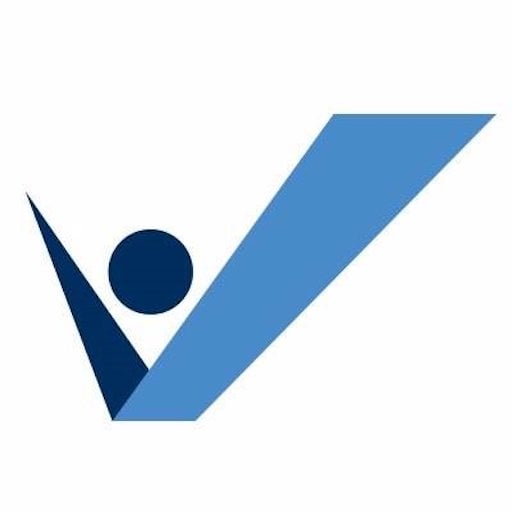
Written by Value Capture, LLC
We are consultants who act as trusted advisors that guide health systems determined to produce perfect health with zero harm, wait, or waste — for patients, teams, and communities. We work with organizations by solving their biggest problem and doing it in a sustainable way, with “no tradeoffs” leading to exceptional change in organizations and the knowledge to continue to improve.

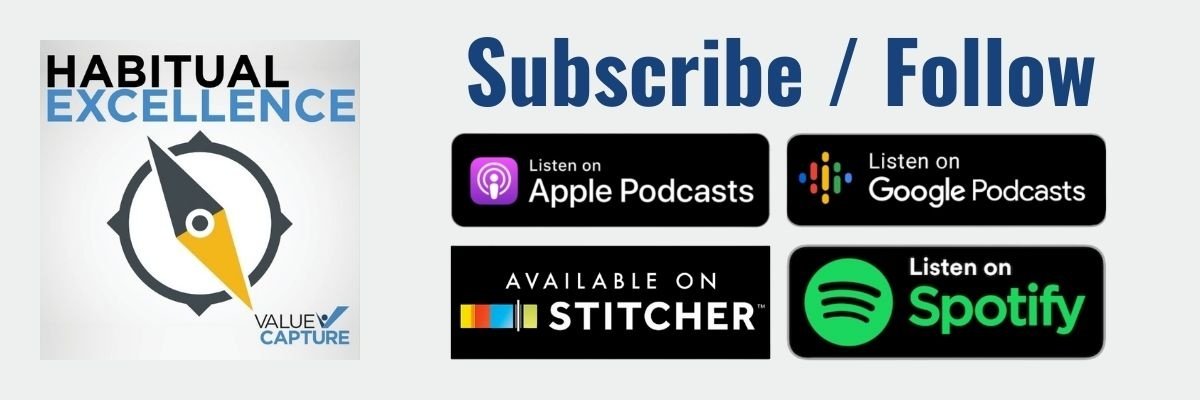
Submit a comment